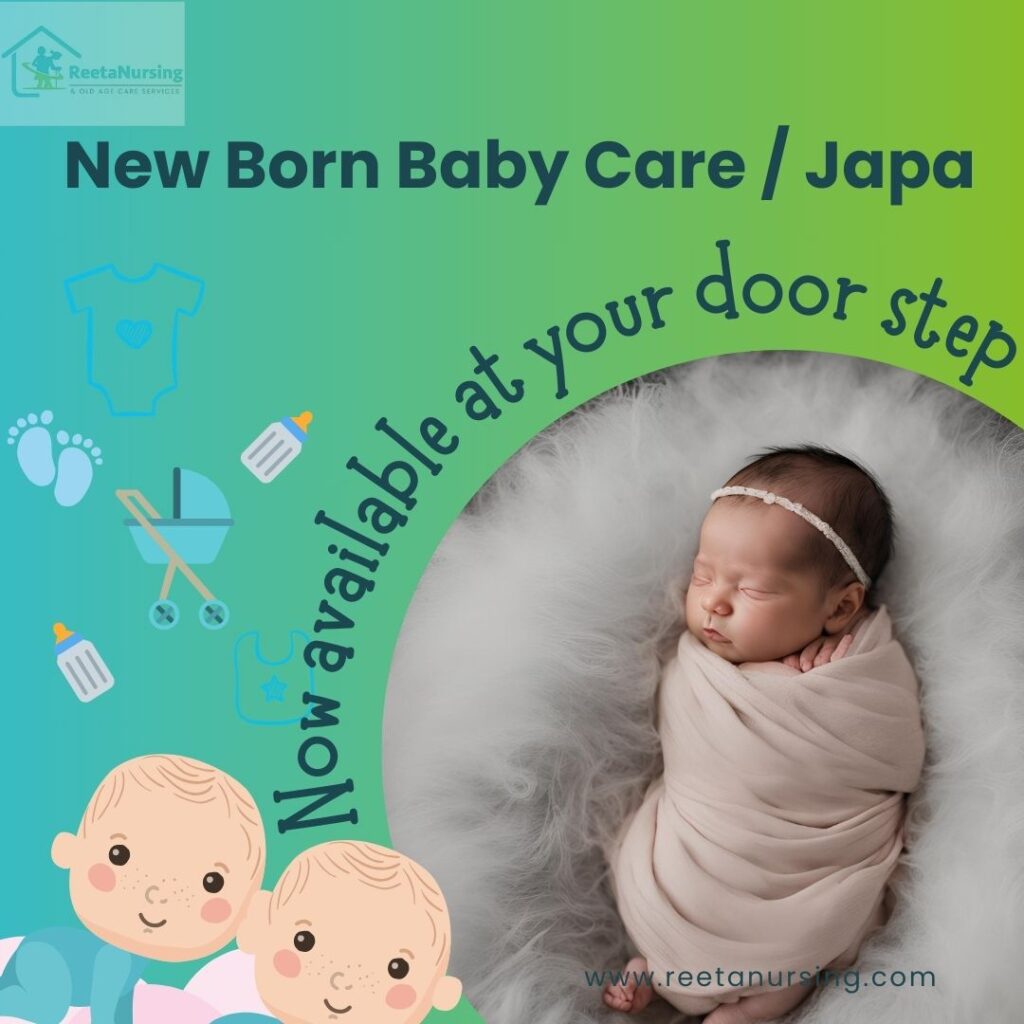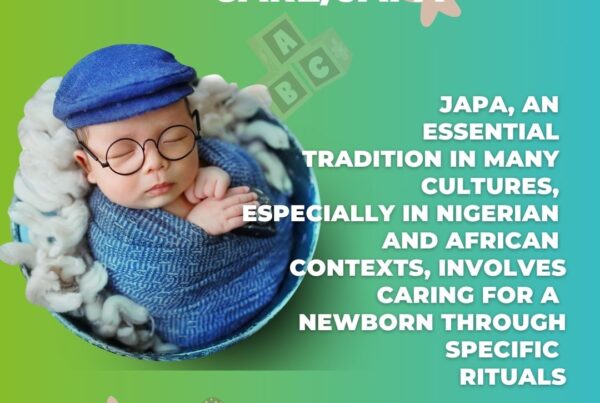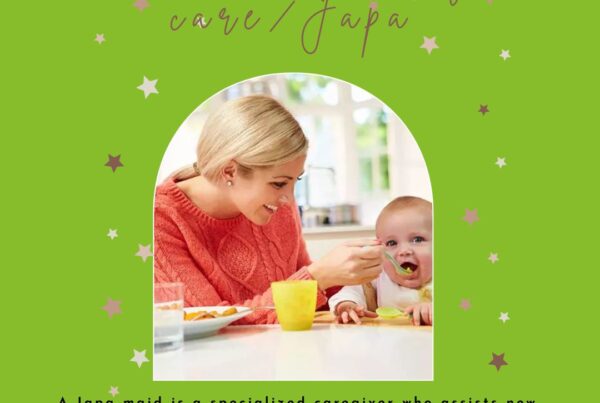In South Delhi, where modernity meets long-standing traditions, the quest for Japa Maid in South Delhi is as much about finding assistance as it is about making a culturally informed decision based on experience and mutual trust. That very first breath of the newborn signals not only the start of life but also a sensitive chapter replete with unspoken anxieties, sleepless nights, and suffocating love. Reeta Nursing is the word spoken around drawing rooms, hospital hallways, and new mothers’ groups—not because of advertising, but through actual stories, actual care, and actual changes.
There is something beneath the surface that Reeta Nursing provides with each Japa maid—something that cannot be measured, only sensed.

When Healing Becomes a Ritual, Not a Routine
A young mother, Prisha, came back from the hospital emotionally drained in an elite South Delhi home. Sleepless, worried, and drenched with her cesarean pain, she was spiraling. Her family sought out Reeta Nursing. The Japa maid didn’t merely massage or bathe the baby—she sanctified the home. With soothing mustard oil mixed with carom seeds, soft lullabies that had been handed down through generations, and a cadence of care that bordered on spirituality, Prisha’s convalescence became not a chore, but a ritual.
Reeta Nursing’s Japa care isn’t a matter of tasks on a schedule—it’s a matter of cultural continuity. It’s care that breathes, not merely serves.
Legacy of Touch: Why Babies Respond Differently
Babies have no idea how to pretend peace. When a Reeta Nursing Japa maid enters a room, their fingers know how to read a baby’s body. This is the culmination of not days or months—but years of passed-down knowledge.
Mira, a seven-day-old baby, wept continuously even after expensive baby equipment, lullaby apps, and visits to the doctor. A Reeta Nursing Japa maid applied a unique movement while rubbing Mira’s feet—a move that she learned from her grandmother in an out-of-the-way village in Uttarakhand. Mira quieted down.
The Japa Maid in South Delhi provided more than service—she interpreted discomfort with sensibility, rather than information.
The Implicit Security Mothers Experience at 3 AM
South Delhi nights are quiet, but new mothers stay awake with troubled minds. What if the baby turns over? What if there’s colic? What if the milk is insufficient?
A Reeta Nursing Japa maid does not just react; she foresees. She picks up hunger before the baby gets fussy. She subtly shakes a drowsy mother to switch sides when breastfeeding. She is the human security blanket no camera or gadget can provide.
This emotional radar is the reason why experienced South Delhi families want the same Japa maid for their third and second children. It is not merely about trust. It’s about being sensed without having to ask.
257 Newborns, 12 Years, and Not a Single Call-Back for Misconduct
This figure isn’t a result of branding. It’s etched out of excellence experienced. Reeta Nursing has catered to more than 257 families in the last 12 years with not a single case of violation of trust or cultural insensitivity.
A single anecdote comes to mind: An NRI couple came back from New York to South Delhi to give birth. Their selected Japa maid was from Reeta Nursing. She learned to live the vegan way with them, recognized their baby’s silent reflux habits, and integrated perfectly well with their pediatrician. The couple prolonged her stay by three months.
When care turns adaptive, intentional, and smart, it becomes a legacy.
Why Doctors in South Delhi Secretly Recommend Reeta Nursing
Some names don’t appear on hospital pamphlets—but they echo through corridors. Many gynecologists and pediatricians across South Delhi discreetly suggest Reeta Nursing’s Japa service to new parents, knowing what hospitals can’t offer post-discharge, Reeta Nursing completes.
It’s not about replacing medical care—it’s about complementing it with soul care.
From lactation care to subtly reminding the mother of iron-based meals and adequate fluid intake, the Japa maids see to it that the recovery space is emotionally and physically ideal.
When Maid Becomes Memory
A recent South Delhi grandmother said: “My grandson still responds to jasmine hair oil scent because that’s what his Japa maid from Reeta Nursing used to use.”
Kids don’t recall faces, but they recall rhythms, warmth, and touch. That is what gets stored in their nervous system. Reeta Nursing isn’t deploying maids—what they are doing is curating healing memories that quietly reside in the child’s body far after the service is over.
FAQs regarding Japa Maid in South Delhi
What is the difference between a Japa maid from Reeta Nursing and a normal maid?
A Reeta Nursing Japa maid is specifically trained in traditional postnatal and newborn healing. They don’t merely cook or clean but are a caring extension of the family, attuned to the baby and mother’s health.
Are maids medically trained for emergencies?
Though not nurses themselves, Reeta Nursing’s Japa maids receive training to identify early warning signs of distress, improper feeding, and maternal exhaustion and recognize when to refer the case to a medical practitioner without delay.
How long is the Japa service?
Normally, the service lasts 40 to 60 days, which is in keeping with Indian postpartum convention. But the families usually prolong it because of the unparalleled comfort and pace the maid introduces.
Do these maids stick to some special dietary practices for the mother?
Yes. They help prepare or recommend foods that induce lactation, healing, and building strength, avoiding ingredients harmful to recovery altogether, as per ancient ways and doctor’s advice.
Is the service safe for high-rise apartments with security constraints?
Absolutely. All Reeta Nursing Japa maids are verified, background-checked, and trained to work in modern urban homes with sensitivity, privacy, and professionalism.
Selecting a Japa Maid in South Delhi is more than checking off an item on a checklist—it’s about protecting the most fragile moments of existence with intelligence, compassion, and elegance. Reeta Nursing doesn’t offer a maid; it brings an experience, a custom, and a quiet vow that the baby and mom will not only be cared for by hands, but by heart.
The tales are true. The change is permanent. And the trust? That is spoken softly in South Delhi homes, one baby at a time.




